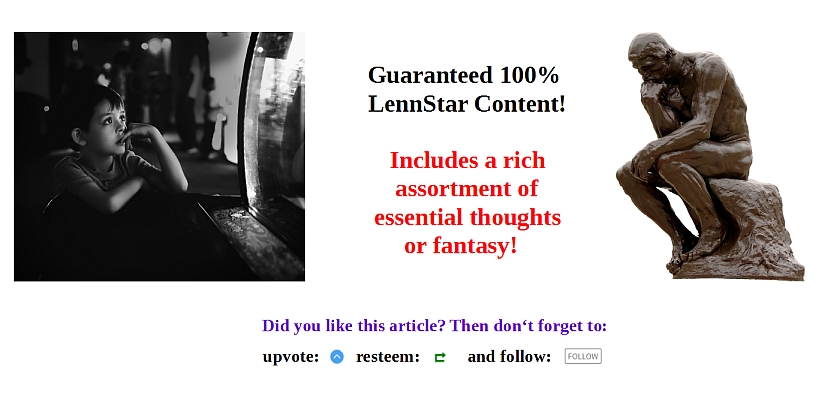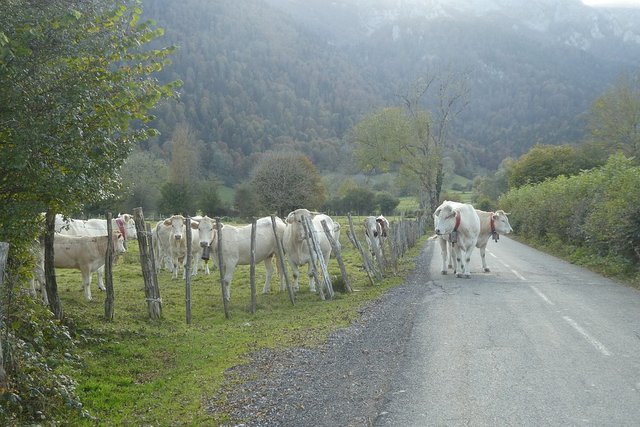1968 ecologist Garrett Hardin wrote an article in Science that had a huge impact on the discussion about natural resources and their governance.
In it he borrowed the description of a grazing cattle herd from a 1833 pamphlet which described over-usage.
In this pamphlet the author William Forster Lloyd describes a field where all members of a village bring their cattle to graze.
For every individual it makes sense to bring more and more cattle on that field, because the individual gain outweighs any costs (that are placed on everyone).
When people do that, the field will eventually be overgrazed and end up being barren. The common ground such leads to the destruction of the resource.
Hardin was concerned about the growth of the human population and a Malthusian result. He stated that in the animal kingdom negative feedbacks prevent over-population, and that the welfare system allowed for parents unable to provide for all their children to raise them all, causing inevitable over-population.
He also stated that to prevent the overusage of common resources you first have to recognize them as such. If you do this, you also recognize that they need management.
Tragedy of the Commons earned widespread interest and brought the word “commons” itself (back) into the scientific discussion.
Misunderstanding and Misuse
But Hardin’s article was frequently misunderstood. He did not say that commonly used resources are doomed. What he instead said that resources must be managed. In his own words, he should have titled the paper “Tragedy of the Unregulated Commons”
Diverse economical sides have referenced to Hardin as an argument for their agenda. Foremost are the “private is always the best solution” worldviews who claimed that only privatization of commons and following the exclusion of users could save the resource.
While Hardin indeed developed a game theory model of privatization, Commonize Costs–Privatize Profits (privatizing profits and socializing losses), this is not what he wrote.
In fact privatization is often what destroys a working commons resource. Privatization only works if the owner pays all costs. Since in many cases costs are externalized (like pollution), privatization results in exact that overexploitation that it was supposed to solve.
There is a multitude of possible solutions, and people have shown over the ages that they can indeed find communal solutions that don’t need any state authority (and often existed longer then the states they happened in). The point here is that there are rules. Rules that are decided and enforced by the users themselves.
Hardin’s article was also often (mis)used as an exlains-all piece for desertification, diminished fishing grounds or the exclusion of nomads from lands while all other factors, like agricultural overexploitation, where conveniently ignored.
Scientists often criticized this behavior as “imposing their own economic and environmental rationality on other social systems of which they have incomplete understanding and knowledge.”
Elinor Ostrom
A lot of scientists worked on “The Tragedy of the Commons”, but the most important is Elinor Ostrom, who (as only woman ever) got a “Nobel” economics prize for her works on Commons.
Ostrom et.al. researched and defined factors and models of commons and under which circumstances they worked and what are traps commoners usually fell into.
The most important finding was framed as such:
There is no commons without commoning.





Being A SteemStem Member
Downvoting a post can decrease pending rewards and make it less visible. Common reasons:
Submit
@jillfeint, this is an excellent post
Downvoting a post can decrease pending rewards and make it less visible. Common reasons:
Submit
I actually think it is one of my less good ones since I could not do the explanations as good as I wanted to :D
Downvoting a post can decrease pending rewards and make it less visible. Common reasons:
Submit
So this post makes me think, is the idea of giving the power back to people with crypto currency a good idea? With the anarchist dream of being nothing to govern anymore, how would people handle things like this. Nice post, seir.
Downvoting a post can decrease pending rewards and make it less visible. Common reasons:
Submit
That is a good question and one I cannot answer.
The usage of cryptocurrencies could help make commons stronger, but also help destroying them. It depends, as always with the commons, if people join together in "enlightened self-interest" or just being egoistic.
Downvoting a post can decrease pending rewards and make it less visible. Common reasons:
Submit
The explanation on privatization and exploitation really struck home with me. I believe many people are good but too many products/services come at the cost of injuring/exploiting land, people, or time.
Downvoting a post can decrease pending rewards and make it less visible. Common reasons:
Submit
If people have troubles with their own life, they son't care for the world. Especially if they don't (and don't want to) see it.
Downvoting a post can decrease pending rewards and make it less visible. Common reasons:
Submit